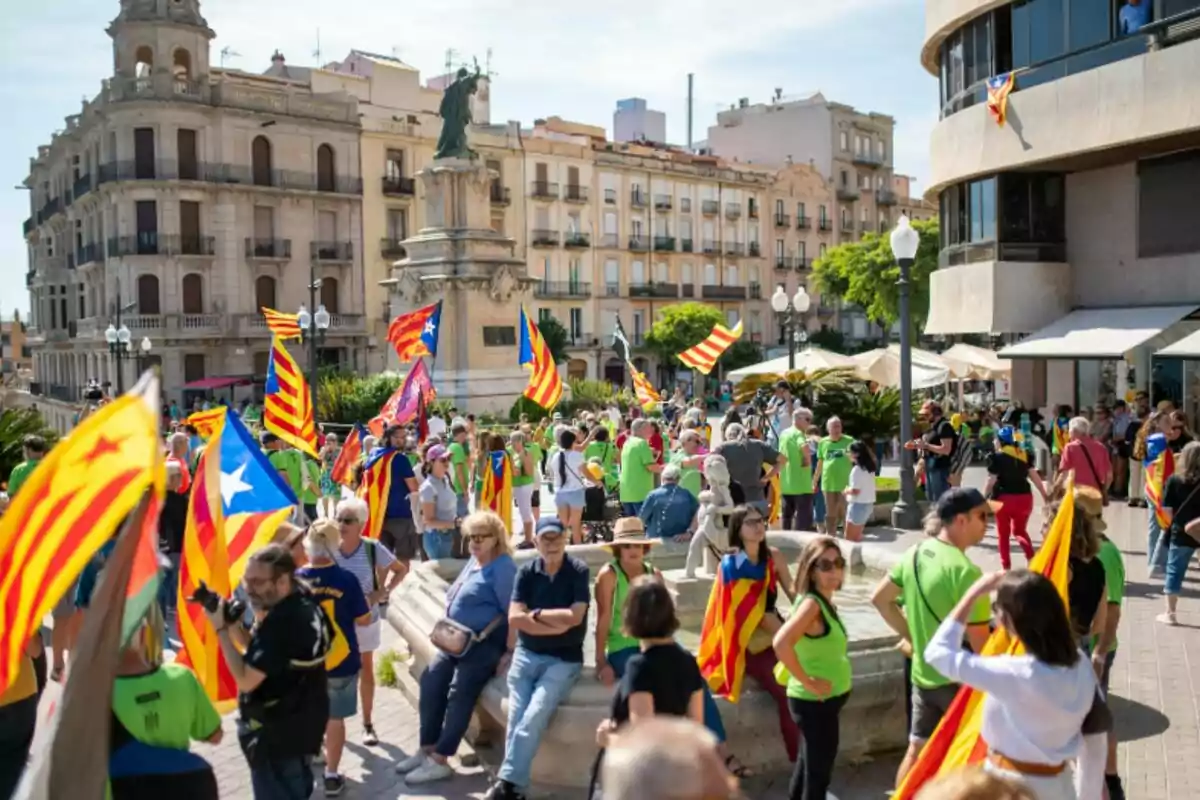
Processism Plays the Referendum Card Again to Cover Up Its Failures
ERC and Junts Need to Sell Hope Amid the Amnesty Fiasco, the Transfer of Rodalies, and Unique Financing
The separatism movement is going through a crisis of internal division and loss of votes, and its leaders have yet to find a way to reverse it. The separatism base has turned its back on ERC and Junts, whom they blame for the failure of the Procés. To counter accusations of being traitors and "botiflers," the separatism parties are trying to reclaim the legacy of the 1-O referendum.

There are two currents within the separatism movement. The more purist current says that Catalans have already voted in a referendum they consider legal, and that the parties' task should simply be the implementation of its mandate. Another current believes that the referendum lacks sufficient international legitimacy and that a new phase of negotiation with the State should be opened to agree on a new referendum.
ERC and Junts Follow the Same Strategy
ERC was the first separatism party to step away from the 1-O and bet on a new phase of détente culminating in a new referendum. Junts has championed the thesis of confrontation for years, considering themselves legitimate heirs of the 1-O spirit. But Carles Puigdemont's agreement with the PSOE clearly places them in another scenario, that of an agreed new referendum.
With some nuances, the strategies of ERC and Junts to achieve Catalonia's independence hardly differ.
ERC bets on broadening the base by including sectors not strictly separatism, with the referendum as the horizon. Junts also aims to promote a referendum law in the Congress of Deputies as a negotiated solution to the Catalonia conflict.
Oriol Junqueras and Carles Puigdemont have once again played the referendum card these days to cover up their failures.
The ERC leader chose an interview on RNE to once again appeal to the referendum as the only democratic resolution to the conflict. Carles Puigdemont took advantage of recent statements by José Luis Rodríguez Zapatero to once again claim Catalonia's right to self-determination.
"The problem will only be closed with the formula that the Catalans validate, whether agreed or unilateral. And this path can be traveled in all legitimate ways, as long as we don't give up the final goal," Puigdemont stated.
"We will always be in favor of voting," said Junqueras, "and we will work to expand the separatism majority when the time comes."
A Card to Cover Their Failure
Junqueras and Puigdemont use the referendum card to hide the failure of their respective strategies in Madrid and Catalonia. ERC and Junts have achieved significant concessions that have ultimately not materialized, such as amnesty, unique financing, or the transfer of Rodalies and immigration competencies. This increases the animosity of the separatism supporters toward these parties and their leaders, who counter it by bringing up the referendum again.

The referendum is precisely the ultimate expression of the separatism movement because it allows its leaders to keep pushing the ball forward. It is an unlikely horizon, an empty promise, but it serves to distract attention.
Moreover, surveys indicate that not only has the separatism sentiment declined, but the balloon of self-determination has also burst. The percentage of Catalans in favor of a referendum has dropped from 80% to just 60%. This increasingly undermines the credibility of leaders who have lost their political capital by precisely following this strategy.
More posts: